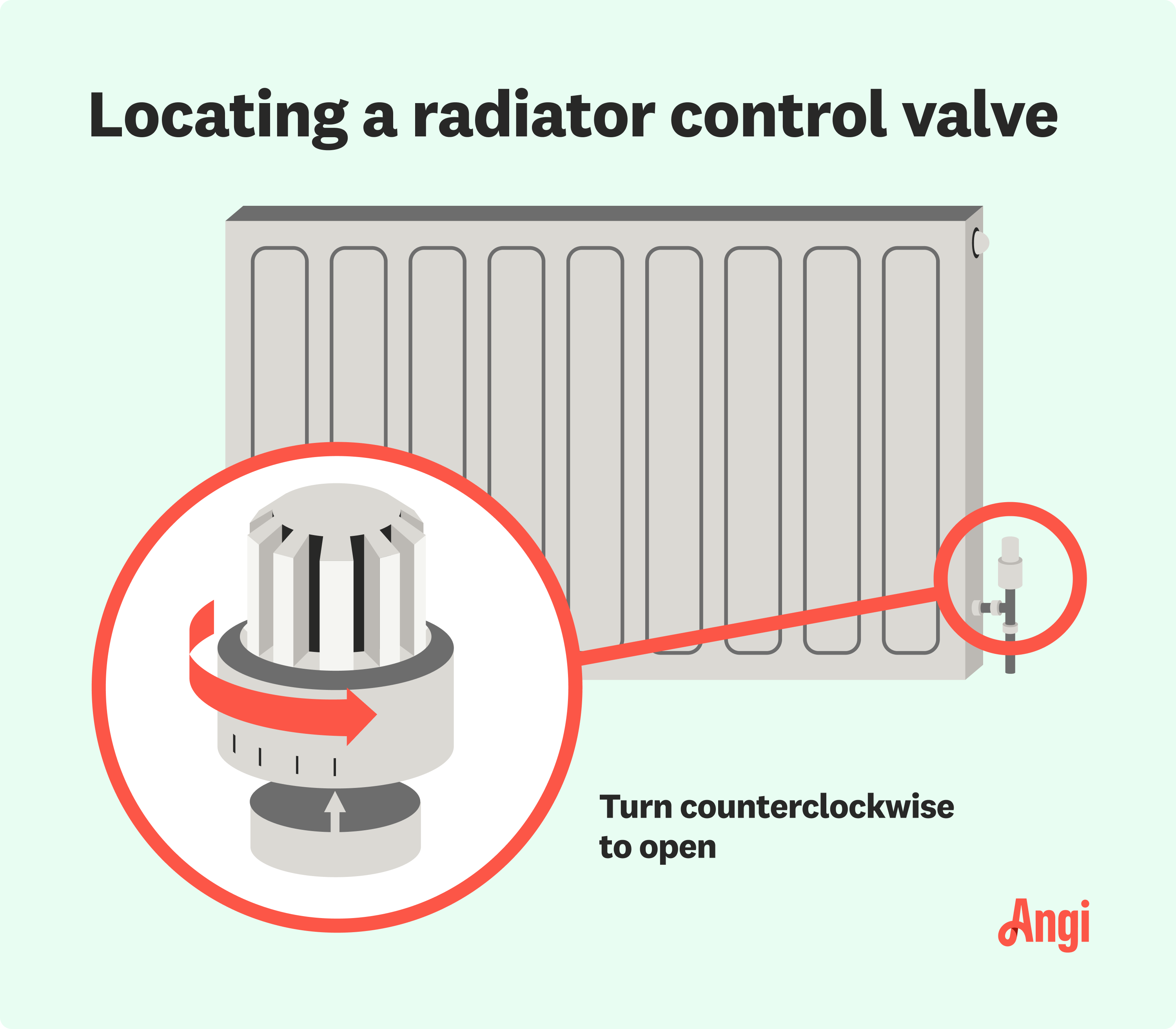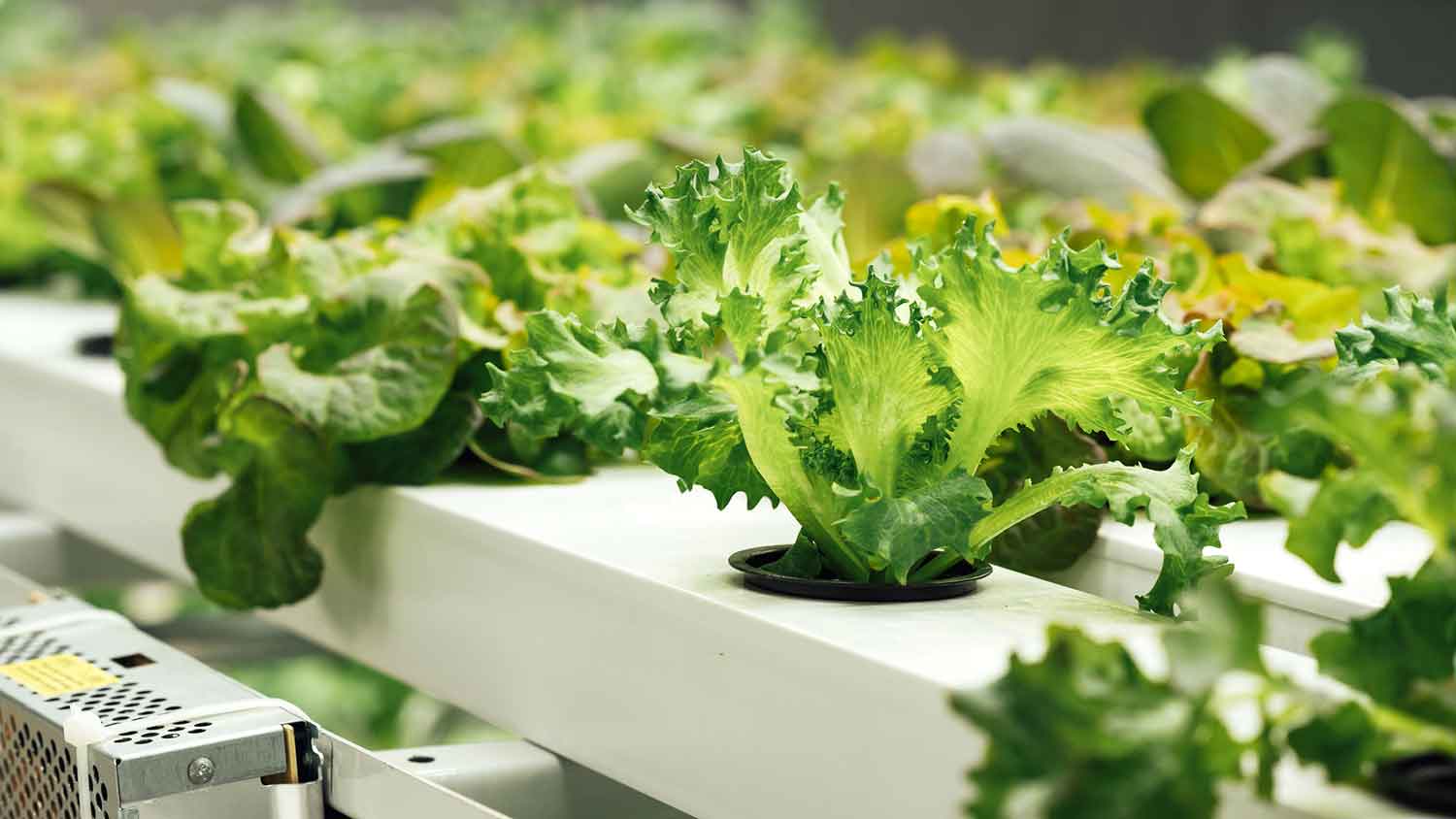
Heating and cooling system on the fritz? Discover the factors that go into HVAC repair costs and how you can save money on this crucial home update.
Figure out how to calm the cacophony


Radiator clanking is usually due to trapped water or air in the radiator.
A clanking radiator could mean your system isn’t heating efficiently.
Bleeding your pipes is typically the first thing to try if you hear a clanking in your radiator.
Why do radiators clank? Well, knocking, banging, and clanking radiator sounds are generally a sign of trapped water or air in the system. When either gets stuck, steam is prevented from moving through the pipe into the radiator. This pressure buildup can make a loud knocking or banging noise.
A loud radiator isn’t necessarily dangerous—but it is a sign that your system isn’t running as effectively as it could be (not to mention a nighttime hindrance when it comes to getting enough sleep). Since keeping your home’s heating system energy efficient is one of the best ways to reduce winter heating costs, it might be worth trying to fix (or calling a local pro for help).
Here are seven common reasons your radiator may be clanking (after you shut it off).

Bleeding your steam radiator pipes is an effective way to remove trapped air that causes banging or knocking sounds. Turn off your heat and give your system time (30 to 60 minutes) to cool. Using your radiator key, turn the valve on your radiator to release built-up pressure.
Never bleed your pipes while the radiator is on. The valve will be very hot, and hot steam or water droplets could make contact with your skin. A trained local HVAC technician can help if you’d rather have a pro do it.
Knocking sounds might mean steam is coming in contact with water in your system. This could indicate a leaky valve.
For DIY fixes, creating a tighter seal is probably your best bet. This can be done by reinforcing the valve stem with graphite packing. (This is another project that should only be tackled when the system is off and cooled.) An HVAC repair specialist near you can replace the valve if it’s faulty or old.

Dirty boiler water can cause condensed water to be thrown up through your pipes, which could be causing the din you’re hearing. Sediment, corrosion, and other types of buildup could all interfere with your home’s heating system. In all of these cases, chemistry is working against you.
Draining your hot water heater and cleaning out the inside may reduce the knocking noises you’re hearing. The pH of boiler water should be between 8.0 and 11.0.
Steam radiators are designed to work at a slightly tilted angle towards the radiator valve. This allows condensed water to more easily flow out of the pipe. If it isn’t tilted, water may not have the advantage of gravity to help it move out of the pipe, and this could result in water getting backed up.
You can place a small piece of wood (half an inch thickness is good) under the radiator to help set it at the right angle. Again, do this while your radiator is off and cooled to avoid potential hazards.
The pipes in your steam radiator expand when warming your home. If your pipes are positioned on a hard surface, such as wood, ceramic, or tile, even a slight expansion can cause it to bump against these objects, making a racket for all to hear. Adding a layer of foam or fiberglass insulation between your pipes and hard surfaces can help deaden the sound.
If pipes attach to ceilings or walls, an insulated pipe clip can help prevent the pipes from hitting the ceiling or wall as they expand.
If you live in an area with hard water, calcium or other sediment deposits can build up in your radiator’s air vent. One sign that this is happening is if your radiator doesn’t get hot all the way across.
To remove calcium buildup, submerge your air vent in vinegar overnight and let dry. You’ll need to keep the radiator off while you do this, so maybe tackle this project on a warmer day when you can live without heat.
If the water pressure in your boiler is too high, you may get an unpleasant clanking or radiator banging noise. When you’re heating your home, your boiler’s water pressure should be no more than 30 PSI. Call in a pro if you’re not sure where to check the water pressure or how to change it.
By working on your HVAC system or undergoing important repairs on your own, you could void your unit’s warranty or further damage the system. Leave HVAC repairs to the pros.
Radiators are designed to last 20 or 30 years so long as your home heating system is well maintained. But older models may be more prone to noises if things are out of whack or misaligned, especially if your system is part of a larger one (in a condominium building, for example).
Have a professional inspect your older radiator and boiler to see if fixes can be made or if replacing your system makes more sense. Installing a new heating system can be costly (the average cost of a boiler replacement starts around $3,600), so a pro might actually save you money if they can reduce noise by replacing a few parts.
From average costs to expert advice, get all the answers you need to get your job done.

Heating and cooling system on the fritz? Discover the factors that go into HVAC repair costs and how you can save money on this crucial home update.

Whole-house humidifier costs vary based on the type and size of the unit, along with other factors. The price might be worth it for people living in dry regions.

Discover the true window AC unit installation cost to learn about labor, permits, and ways to save on your window AC project.

Tackling unwanted odors from indoor plants can be tricky. Learn how to use a carbon filter in your duct fan to improve air quality.

There are few things more important to homeowners than keeping their AC systems running. Use this guide on AC leak repair to keep your home cool and comfy.

Do you have a clogged AC drain line? We dig into the reasons behind those pesky blockages and how to clear them for optimal AC performance.